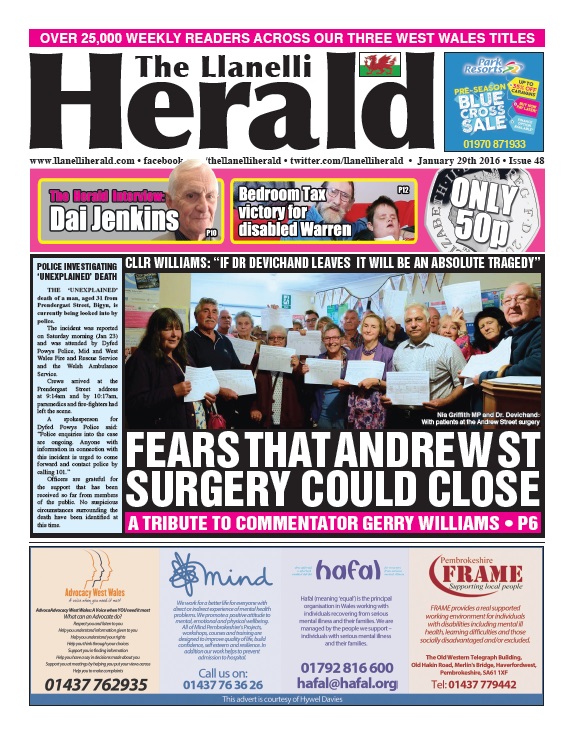 JANET AND JOHN will be dismayed to hear the latest news regarding their peers. Children in the UK are spending more time on the internet than in front of the TV or reading for pleasure.
JANET AND JOHN will be dismayed to hear the latest news regarding their peers. Children in the UK are spending more time on the internet than in front of the TV or reading for pleasure.
Research has found that on average 5 to 15-year olds are spending three hours a day using the internet, compared to 2.1 hours watching TV. Time in front of the TV is in decline whereas time in front of a computer has increased. The losers in all of this is Janet and John. The time spent reading books for pleasure has declined from an hour a day on average in 2012 to just over half an hour on average this year.
The Herald decided to take a look back at the changes in culture, which have led to this dramatic change in behaviour of children.
The 1950s were an age of post war development. Few people had cars. Children played games in the street. Andy Pandy, Watch with mother and the flowerpot men were TV favourites. The Berlin Wall separated East from West and the Cold War had begun. Children growing up at that time in Britain were surrounded by conflicting ideas, opinions and influences. Young people were expected to conform, and to live and behave in the same way as their parents. Standards of living were rising and unemployment was low. It was still unusual for people from different social groups to mix together. There were improvements in education. A greater number of women went to university. Social barriers between the sexes and classes were eroded as young people from the different backgrounds mixed more. Against this backdrop, two white middle class children and their perfect mother and father were introduced. They were first launched in 1949, and based on an American version entitled Alice and Jerry. The storylines of the Janet and John books were hardly changed for thirty years.
Up to 10 million British children, learnt to read with Janet and John. The portrayal of the perfect nuclear family of the ‘50s helped nearly every child in this country towards literacy. My own memories are of feeling a sense of achievement on completing each book in the series. Moving from one colour to another. The repetition of ‘look john, look’ or, ‘come here john, come here’ still resounds in the depths of my memory. Janet and John books have been described as ‘the books that taught a nation to read’. The books follow the adventures of two children, Janet and John. They remained in use throughout the 50s, 60s and part of the 70s. Their disappearance was as a result of the changing face of British culture. They were felt to be too unrepresentative of the multicultural, socially tolerant and politically correct direction in which British society was heading.
The 60s passed Janet and John by. They went on in their innocent idyll, sheltered from the vices of pot and acid. Festivals were a no go area for them. Psychedelic posters and visual installations appeared in art galleries. None of this appeared in the Janet and John books. Their mother’s hemline did shorten a couple of inches. Society was still easily shocked. As the 70s rolled in, the non-PC comedies such as Love Thy Neighbour and Alf Garnett were soon to be pulled from the T V screens. They were replaced with equally non-PC programmes such as Benny Hill and the Two Ronnies. Filmmakers were attempting to show things as they were. The film Kes and documentary Cathy come home showed a different Britain. The middle class lifestyle of Janet and John was drifting further from reality.
The 70s saw the introduction of the decimal system. The Royal F amily were still popular and respected. The public were revelling in Golden Jubilee celebrations. Glam Rock was at its height with bisexual musicians, Marc Bolan and David Bowie providing the shock factor. Television presented the public with tough cop dramas like the Sweeney, Callan & Starsky and Hutch. There was also the birth of analytical self-help daytime TV programmes. We actually saw and heard the public on our screens. For the first time, the real Britain was being scrutinised and displayed, warts and all. Dennis the Menace and Beryl the Peril were the comic strip role models. John could have made a comeback in a stripy jumper and spiky hair. Janet could have sported Doctor Marten boots with catapult in trouser pockets. This did not materialise and another decade passed.
TV in the 80s saw an Australian soap opera gripping the nation and providing role models for children. Britain experienced rioting, the miners and poll tax protesters fought openly with police. The gay community organised national marches. It seemed like everyone was protesting. Janet and John were in hiding and who could blame them. Television and celebrity were taking over from the book. Music was urging young people to rebel. The punk rockers called the queen a moron. Sex, drugs and violence were issues, which began to make the news. Gilbert and George had the shock factor with images of male genitalia and faeces. Chris Offolusi went a step further and used excrement as a medium for his work. The BBC had to ban songs with expletives or overtly sexual messages. Frankie Goes To Hollywood felt the wrath of Auntie with their song, ‘Relax’. A global consciousness was awakening. Bob Geldof organised the Live Aid concert to relieve the famine in Ethiopia. Africa dominated the psyche. Janet and John had escaped Thatcherism, comprehensive education and the Yuppie generation.
The 90s flew by and were signalling the growing unrest throughout the world. TV screens beamed acts of terror live to our screens. Terrorism exploded and wars emerged in almost every corner of the globe. Janet and John were still safe in obscurity. George Orwell’s prediction of ‘Big Brother’ was beginning to be realised with CCTV was everywhere. The children of the 60s and 70s were now parents. Politicians called for wholesome, back to basics education. In 1997, Tory education secretary Gillian Shephard called for the return of these children’s favourites – traditional, proper stories. The time was right to rekindle the memory of Janet and John. This despite the fact that the names, Janet and John had disappeared from the most popular names list. Jack, Thomas, Chloe and Emily had replaced them.
TV was now using established celebrities to read books on programmes like Jackanory. Between 1960 and 1970, more than 80% of children in this country were using the Janet and John books to learn to read. By 1980 the books were hardly used at all, maintaining a profile only in places such as South Africa. British children were picking up the books of a new generation of writers such as Roald Dahl, Sue Townsend and Paula Danziger. These books tended to demonise adults and mock authority. They took the child’s view and went overboard on goo and bad behaviour. The children did not have to conform. The illustrations were exciting and fun. The text elaborated on mood and circumstances and broke rules. The books were being read on T.V. They were also being made into films. Children’s reading books were becoming more exciting. The Oxford Tree series presented Wilma, Biff, Kipper, Chip and Floppy. What could Janet and John offer?
The ‘Star Kids’ company bought the rights to. Janet and John from the original publishers. Janet and John were an institution. Their rebirth has fuelled debate. Government ministers have pushed through reforms in education. The Literacy Hour has been introduced into schools to combat the falling rate of literacy in Britain. Arguments continue as to which method for teaching a child to read is best. The whole word approach as in Janet and John, or the phonics approach. Family groups are also concerned that the new Janet and John continues to avoid issues, which are very real to many marginalised families. Gay and Lesbian groups are also concerned about the proposed legislation to repeal Section 28 concerning the promotion of homosexuality.
The new millennium has continued to throw up major issues, which affect children. Threats from sexual predators. Anti social behaviour orders. Politicians jumping from one idea to the next. Pressure on parents and carers has never been greater. Children are being commoditised and sexualised. One wonders if Janet and John will ever be allowed to be themselves, just innocent children. Will Woodward sums up at the end of his article when he notes;
“If Harry Potter is the jam sponge and roly-poly of the genre, it remains to be seen whether Janet and John, even in its revamped form, prove any more popular than tapioca pudding. Janet and John have been the microscope through which we have viewed the changes in society. One could argue that they should have moved with the times and addressed issues within the pages. In their defence, the new, radical political correctness was not on anyone’s agenda. Their disappearance was not through the choice of children. Perhaps the authors found it difficult to continue writing much as an artist or photographer does when faced with the onslaught of the new. This latest news about children’s behaviour may filter down to Janet and John but unless they and other publishers of children’s books find a way of appealing to the kids online, this may just be the beginning of the end of children reading for pleasure.

















Add Comment